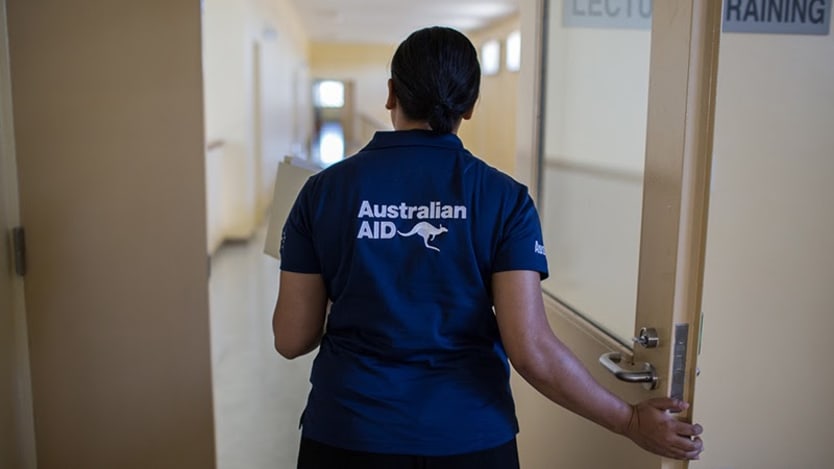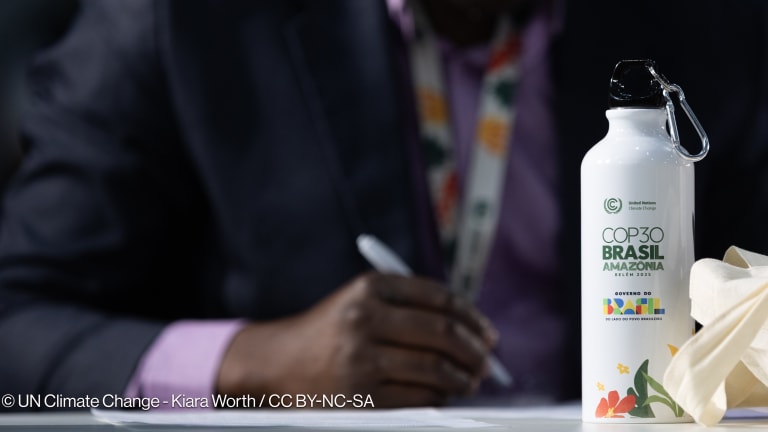
CANBERRA — A new report has found Australia to be lacking in its understanding of Pacific culture, resulting in ineffective engagement in the region.
But Australia is not alone. The report “Pacific Perspectives on the World,” launched by the Whitlam Institute at the 2020 Australasian Aid Conference on Feb. 17, shows that donors re-discovering the Pacific risk failure through initiatives conceived externally and not in partnership with the Pacific.
Aimed at studying the divide between Australian aid and its reception in the Pacific, the report adds to an increasing body of literature on the topic, and was conducted as a pilot study in three countries — Fiji, Solomon Islands, and Vanuatu — enabling Pacific community voices engaged with donors to share their perspectives on regional programs.
“Australia doesn’t understand the Pacific as much as Australia thinks.”
— Geir Henning Presterudstuen, senior lecturer in anthropology, Western Sydney UniversityLeanne Smith, director of the Whitlam Institute, explained that this research aimed to better support the development of Australia’s foreign policy. But she also said that in returning to work in Australia after 10 years with the United Nations, she had found in discussions of the aid program that there was a disconnect between Australian investment and reception in the Pacific region. Better understanding the divide would help develop a better engagement in the Pacific region.
The key findings
The report highlighted three key themes that came out of discussions. First, was the need to focus on improving the quality of the relationship between Australia and the Pacific.
“The quality of the relationship matters more than the quantity — the quantity of announcements, quantity of projects, or quantity of aid money,” Tess Newton Cain, adjunct associate professor with the Griffith Asia Institute, said. “What people are looking for is a deep, high quality, nuanced relationship — and one that isn’t going to fade away when a particular geo-political moment may or may not happen.”
Second was the importance of donors such as Australia to value Pacific norms and culture.
“For them, values and norms and the ways of doing things matter — and they matter a lot,” Newton Cain said.
And finally there was the recognition that Australia was not the only player in town — and this would not change any time soon.
In response to these findings, the report makes four recommendations to make Australian engagement more effective and meaningful.
“It became apparent that participants had more thoughtful opinions on Australia than Australia had on them.”
— James Cox, co-author, “Pacific Perspectives on the World” reportShifting gears on the step up to be less about what Australia is doing to or for the Pacific region, and instead what they are doing in partnership was seen as a priority. For Linda Kenni, a Vanuatu based consultant, this means putting in the time to listen to Pacific priorities and have regional partners at the discussion table.
“Taking the time to listen to people, for them to tell you their priorities, how to do it and engaging them to come up with a plan is important,” she said. “This provides engagement in a very meaningful way.”
The report also recommends Australia invest in developing its Pacific literacy to better understand both Pacific culture and Australian history in the region — through formal and informal education as well as in the media.
Australia responds to climate concerns by redirecting aid
An announcement ahead of the 2019 Pacific Island Leaders Meeting in Tuvalu this week will see 500 million Australian dollars ($338 million) redirected to support climate initiatives in the Pacific.
Geir Henning Presterudstuen, a senior lecturer in anthropology at the Western Sydney University, said this was critical to enable an aid program that was not only in it for the long term, but also one that would be sustainable. Currently, he said, aid programs were commonly targeting the “wrong things” and were not being supported by communities on the ground.
“Australia doesn’t understand the Pacific as much as Australia thinks,” Henning Presterudstuen said.
Australian domestic politics was also a cause of concern, with Pacific Islanders highlighting that Australia needed to get its house in order before it tried to engage elsewhere. That included better action on climate change, but also better support for the needs and advancement of Aboriginal and Torres Strait Islander communities.
“It became apparent that participants had more thoughtful opinions on Australia than Australia had on them,” James Cox, founder of Peacifica and co-author of the report, said. “This manifested itself in all sorts of different ways — they had a deep understanding and appreciation of shared history between Australia and the region, and a strong sense of shared community. And they are acutely aware of the ways in which Indigenous Australian are represented.”
And leveling the playing field for access to Australia, including easier processes for trade and travel, was also a priority with study participants seeing that Western countries were receiving advantages that they were not.
Compared to other donors
The advantages and disadvantages of engaging with Australia were highlighted by participants, with the recognition that their greater choice in partners was helping the Pacific to be more vocal on their needs.
“There were a lot of comments that New Zealand does this better,” Newton Cain said, especially in recognizing Indigenous leadership. When Minister of Foreign Affairs Winston Peters visited the region, she said he would bring a team of Maori and Pacific leaders which highlighted the value of Indigenous voices to his government.
There were also disadvantages compared to China — Newton Cain explained that some aspects of Chinese activities in the region engaged well with Pacific culture. And in some circumstances, the relationship was easier with China than it was with Australia.
Where Australia did well was in its work of inclusivity, including on gender and disability. But there was concern expressed that Australia was stepping away from this under the leadership of Prime Minister Scott Morrison.
“There was concern that Australia was backing off from the very important work that they’ve done over a very considerable time, and a number of respondents expressed concern that this maybe wasn’t a concern for Australia any more,” Newton Cain said. “That was something they found troubling.”
Despite criticism, Kenni stressed that for Vanuatu in particular, Australia was seen as “family.”
“They see Australia as somebody really close to them, and that’s why they have a lot to say about Australia,” she said.
The criticism should be seen as the desire from the Pacific for the partnership to succeed and be sustainable, Newton Cain said. But for now, more work is needed to make that happen.








